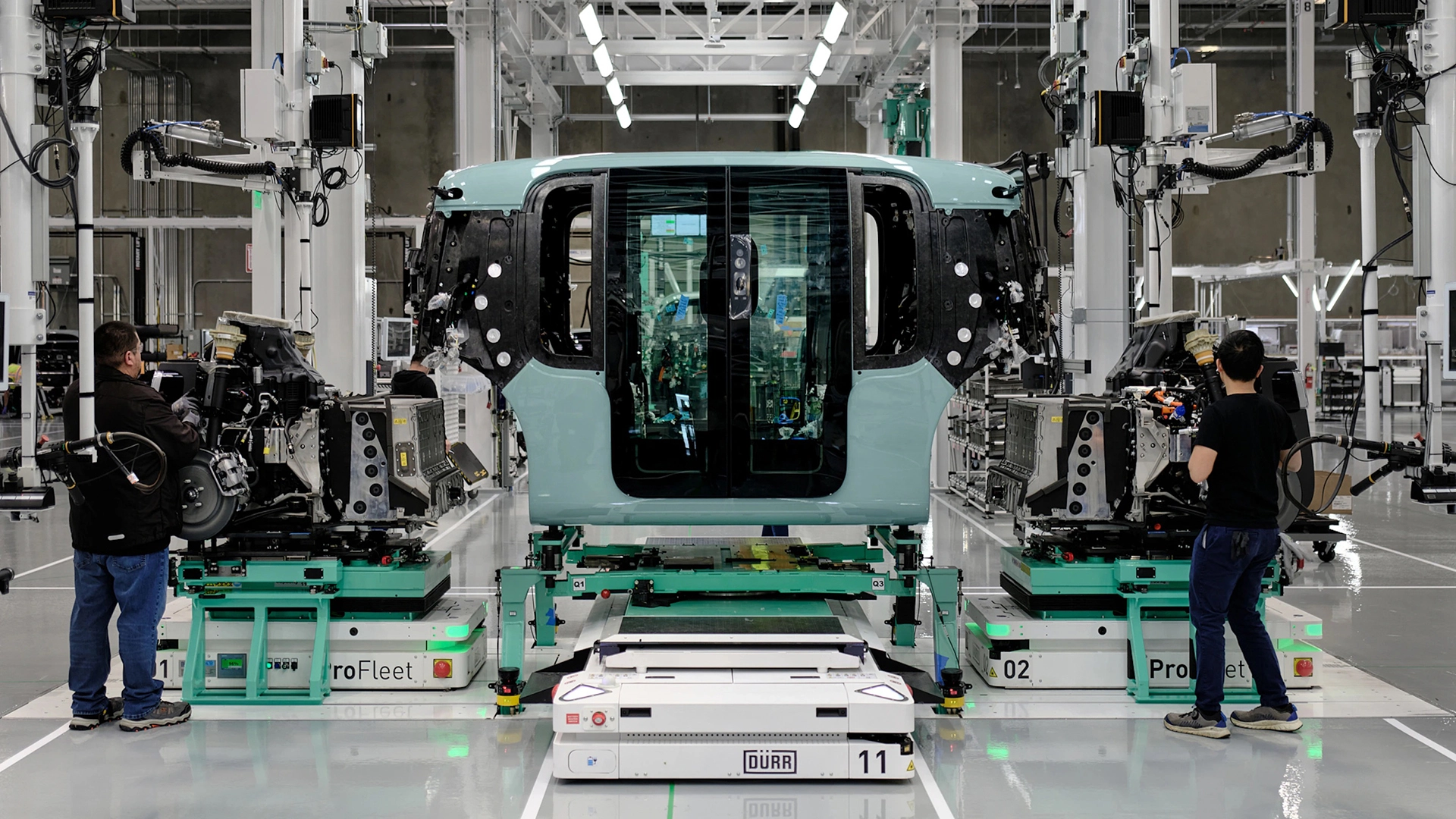
Photo courtesy of Zoox, Inc
Amazon’s Zoox Opens First Robotaxi Serial Production Facility In The U.S.
The autonomous vehicle company Zoox, backed by Amazon, announced on Wednesday that it has opened its first serial production facility to build robotaxis in the United States. The new facility will support the company’s expansion into Las Vegas, San Francisco, and other cities.
In a rush? Here are the quick facts:
- Zoox opened its first serial production facility to build robotaxis in the Bay Area.
- The new facility measures 220,000 square feet and has the capacity to assemble over 10,000 robotaxis per year.
- The company expects to expand its services across Las Vegas, San Francisco, Austin, and Miami.
According to the press release, this is Zoox’s second facility in the Bay Area and is located in Hayward. What makes the new location special is its size, 220,000 square feet, and its capacity to assemble over 10,000 robotaxis per year.
Zoox expects to produce more robotaxis to match the demand for its services in multiple cities in the United States. The company will focus first on Las Vegas, then San Francisco, Austin, and Miami.
“This facility is used for a myriad of different operations, including robotaxi engineering and software/hardware integration, robotaxi assembly, storage of robotaxi components, shipping and receiving, and end-of-line testing required before the robotaxis are deployed,” explained the company.
The new facility combines the work of robots and humans to assemble the robotaxis. The robots focus on tasks such as applying the adhesive for glass installation and transporting the vehicles, while humans handle the rest of the work.
As part of its expansion, the company emphasized that its mission to scale production and services will soon create hundreds of new jobs in the region.
The automotive company also expressed its commitment to reducing air pollution and noise, and added that, compared to traditional facilities, it has a low power draw.
Zoox is a major competitor in the dynamic robotaxi market in the United States. It faces competition from similar services, such as those offered by Waymo—which recently partnered with Uber to launch its services in Austin—and Tesla, which announced a new robotaxi service called Cybercab a few months ago.


 Previous Story
Previous Story

 Latest articles
Latest articles 